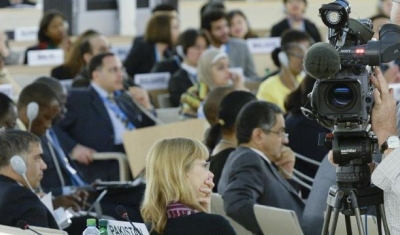The Digital Society and Human Rights: Putting Human Rights at the Heart of the Design, Development and Deployment of Artificial Intelligence
Event


n3wjack's world in pixels
Upholding human rights in an age of artificial intelligence calls for an examination of the full rights implications of the digital society and to identify ways to effectively respond to the potential and challenges of big data and artificial intelligence (AI). This requires states and businesses to apply a human-rights based approach (HRBA) to existing and future applications of these technologies. An HRBA provides a common language to frame harms, offering clear parameters as to what is and is not permitted under international human rights law, both for state and non-state actors.
This event, co-organized with the Universal Rights Group (URG) and the Human Rights, Big Data and Technology Project at the University of Essex, will focus on three key areas:
Full rights implications of AI
Panellists will highlight not only how the rights to equality and non-discrimination, and privacy, are being affected by AI, but examine the gatekeeper role of these rights, and how violations thereof can strike at the core of identity and autonomy.
Applying an HRBA to Existing Uses of AI
Actors that are currently designing, developing and using these technologies need to apply an HRBA to their work. This requires transparency to where, when, how and why big data and AI are being used, and ongoing human rights impact assessments and the establishment of accountability and independent oversight processes.
Embedding an HRBA in AI Policies, Strategies and Regulation
States and businesses are beginning to examine how individual and societal harm by AI might be addressed through dedicated policies, strategies and potential regulation. Panellists will show that an HRBA is an effective vehicle to bring together the different actors active in this field, including states, business enterprises, and civil society, in order to address the challenges and opportunities presented by big data and AI.
Chair
- Marc Limon, Universal Rights Group
Speakers
- Peggy Hicks, Director, Thematic Engagement, Special Procedures and Right to Development Division, Office of the United Nations High Commissioner for Human Rights
- Malavika Jayaram, Executive Director, Digital Asia Hub and Faculty Associate, Berkman Klein Center for Internet & Society at Harvard University
- Lorna McGregor, Professor, Human Rights, Big Data and Technology Project, University of Essex
- Jack Poulson, Independent Computational Scientist and formerly Math Professor at Stanford University & Machine Learning Research Scientist at Google
Registration
You must register via the event's page on the URG website to attend this event.








